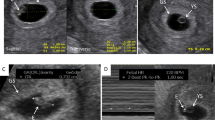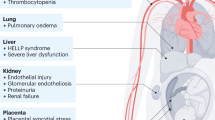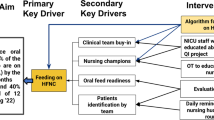Objective
To examine neonatal outcomes of infants with gastroschisis born <32 weeks’ gestation compared to matched infants without gastroschisis.
Study design
Retrospective matched-cohort analysis of infants with gastroschisis born <32 weeks’ gestation at Children’s Hospitals Neonatal Consortium (CHNC) NICUs from 2010 to 2022 compared to gestational age-matched controls.
Results
The study included 119 infants with gastroschisis and 357 matched infants; 60% of infants born 29–32 weeks, 23% born 26–28 weeks, and 16% born < 25 weeks. Mortality was not significantly different between groups (11% vs. 9%, p = 0.59). Preterm co-morbidities such as IVH, BPD, ROP, and PVL were similar, as were rates of surgical NEC. Infants with gastroschisis had longer hospital stays (92 vs. 67 days), higher CLABSI and UTIs, and were more likely to need feeding support at discharge.
Conclusion
Compared to infants without gastroschisis, infants <32 weeks’ gestation with gastroschisis had similar risks for inpatient mortality, NEC, and other preterm co-morbidities.
This is a preview of subscription content, access via your institution
Access options
Subscribe to this journal
Receive 12 print issues and online access
$259.00 per year
only $21.58 per issue
Buy this article
- Purchase on Springer Link
- Instant access to full article PDF
Prices may be subject to local taxes which are calculated during checkout

Similar content being viewed by others
Data availability
Data from the study are not available for sharing.
References
Kirby RS, Marshall J, Tanner JP, Salemi JL, Feldkamp ML, Marengo L, et al. Prevalence and correlates of gastroschisis in 15 states, 1995 to 2005. Obstet Gynecol. 2013;122:275–81.
Jones AM, Isenburg J, Salemi JL, Arnold KE, Mai CT, Aggarwal D, et al. Increasing prevalence of gastroschisis — 14 states, 1995–2012. MMWR Morb Mortal Wkly Rep. 2016;65:23–6.
Raymond SL, Hawkins RB, St. Peter SD, Downard CD, Qureshi FG, Renaud E, et al. Predicting morbidity and mortality in neonates born with gastroschisis. J Surg Res. 2020;245:217–24.
Brebner A, Czuzoj-Shulman N, Abenhaim HA. Prevalence and predictors of mortality in gastroschisis: a population-based study of 4803 cases in the USA. J Matern Fetal Neonatal Med. 2020;33:1725–31.
Cain MA, Salemi JL, Paul Tanner J, Mogos MF, Kirby RS, Whiteman VE, et al. Perinatal outcomes and hospital costs in gastroschisis based on gestational age at delivery. Obstet Gynecol. 2014;124:543–50.
Overcash RT, DeUgarte DA, Stephenson ML, Gutkin RM, Norton ME, Parmar S, et al. Factors associated with gastroschisis outcomes. Obstet Gynecol. 2014;124:551–7.
Landisch RM, Yin Z, Christensen M, Szabo A, Wagner AJ. Outcomes of gastroschisis early delivery: a systematic review and meta-analysis. J Pediatr Surg. 2017;52:1962–71.
Gupta R, Cabacungan ET. Outcome of neonates with gastroschisis at different gestational ages using a national database. J Pediatr Surg. 2018;53:661–5.
Fraga MV, Laje P, Peranteau WH, Hedrick HL, Khalek N, Gebb JS, et al. The influence of gestational age, mode of delivery and abdominal wall closure method on the surgical outcome of neonates with uncomplicated gastroschisis. Pediatr Surg Int. 2018;34:415–9.
Riddle S, Acharya K, Agarwal N, Ahmad I, Bendel-Stenzel E, Shepherd J, et al. Gestational age at delivery and neonatal outcomes among infants with gastroschisis in the Children’s Hospitals Neonatal Consortium (CHNC). Am J Perinatol. 2022;41:756–63.
Johnson S, Kimball S. Gastroschisis and extreme prematurity: a report of two survivors. J Pediatr Surg. 2011;46:1274–6.
Feldens L, da Silva SS, Silva MM, Roenick MLP, Feldens R, Ponso AC, et al. Gastroschisis and multiple intestinal perforations in a preterm neonate. J Pediatr Surg Case Rep. 2013;1:398–400.
Nice T, Russel R, Fineberg N, Rogers D, Martin C, Chaignaud B, et al. Gastroschisis: outcomes of extremely premature infants. (2014). Available from: https://www.asc-abstracts.org/abstracts/8-13-gastroschisis-outcomes-of-extremely-premature-infants/.
Carnaghan H, James CP, Charlesworth PB, Ghionzoli M, Pereira S, Elkhouli M, et al. Antenatal corticosteroids and outcomes in gastroschisis: a multicenter retrospective cohort study. Prenat Diagn. 2020;40:991–7.
Murthy K, Dykes FD, Padula MA, Pallotto EK, Reber KM, Durand DJ, et al. The children’s hospitals neonatal database: an overview of patient complexity, outcomes and variation in care. J Perinatol. 2014;34:582–6.
US Centers for Disease Control and Prevention, National Healthcare Safety Network. Device-Associated (DA) Module. Protocol and Instructions: Central Line–Associated Bloodstream Infection (CLABSI) Event. (2024).
Labuz DF, Asch MJ, Buchmiller TL. Use of cadaveric skin graft for staged gastroschisis repair in a premature infant. Neonatology. 2020;117:771–5.
Dimitriou G, Greenough A, Giffin F, Davenport M, Nicolaides KH. Temporary impairment of lung function in infants with anterior abdominal wall defects who have undergone surgery. J Pediatr Surg. 1996;31:670–2.
Lin PW, Nasr TR, Stoll BJ. Necrotizing enterocolitis: recent scientific advances in pathophysiology and prevention. Semin Perinatol. 2008;32:70–82.
Funding
This study was not funded.
Author information
Authors and Affiliations
Consortia
Contributions
All authors contributed to the study design, investigation, and preparation of the manuscript.
Corresponding author
Ethics declarations
Competing interests
The authors declare no competing interests.
Additional information
Publisher’s note Springer Nature remains neutral with regard to jurisdictional claims in published maps and institutional affiliations.
Supplementary information
Rights and permissions
Springer Nature or its licensor (e.g. a society or other partner) holds exclusive rights to this article under a publishing agreement with the author(s) or other rightsholder(s); author self-archiving of the accepted manuscript version of this article is solely governed by the terms of such publishing agreement and applicable law.
About this article
Cite this article
Pugh, C.P., Zaniletti, I., Miquel-Verges, F. et al. A multicenter matched-cohort analysis of gastroschisis outcomes in infants born before 32 weeks gestation. J Perinatol (2024). https://doi.org/10.1038/s41372-024-01974-8
Received:
Revised:
Accepted:
Published:
DOI: https://doi.org/10.1038/s41372-024-01974-8



